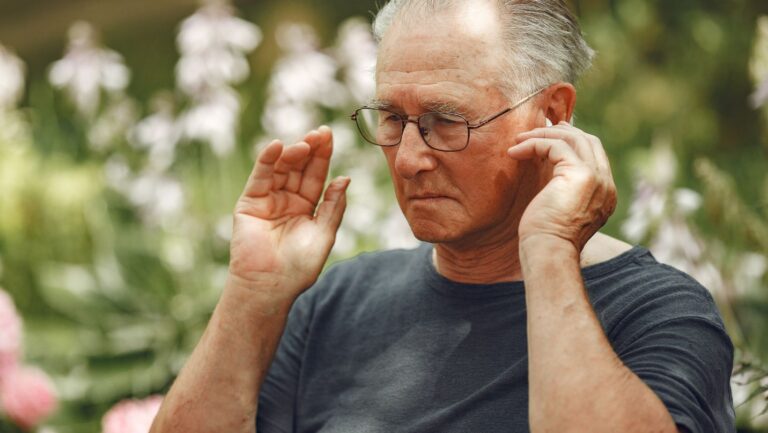Hearing loss doesn’t arrive with sirens. It doesn’t knock politely. It drifts in quietly, and you adjust without even realizing. You laugh at jokes you only half-heard. You turn the TV volume up just a little more. You nod through conversations, hoping no one notices you didn’t quite catch what was said.
This quiet adjustment becomes a habit. People don’t realize how much of their world is slipping away until it’s already a pattern. According to the World Health Organization, over 1.5 billion people worldwide live with some degree of hearing loss, a number projected to reach 2.5 billion by 2050. It’s not rare. It’s not niche. It’s global.
But most of us avoid facing it. Because acknowledging the problem feels like admitting weakness. Or worse… aging.
The Quiet Cost of Waiting Too Long
Most people wait an average of seven years from the first signs of hearing loss before they get help. Seven years of misunderstandings. Seven years of missed punchlines. Seven years of quietly opting out of conversations because you don’t want to ask someone to repeat themselves again.
The cost isn’t just social. Research shows that untreated hearing loss is linked to higher risks of depression, anxiety, and even dementia. It affects how your brain processes sound, and over time, it rewires your connections.
What seems like a small inconvenience compounds into a larger health risk. And all because the first step felt too inconvenient.
Hearing Loss Isn’t Just for “Old People”
The biggest myth about hearing loss is that it belongs exclusively to seniors. It doesn’t. Nearly one in four adults aged 20 to 69 already show signs of noise-induced hearing loss.
Think about your own habits. Concerts, headphones at max volume, city traffic, sports arenas. Exposure adds up. A study published in BMJ Public Health estimated that almost 1 billion young people are at risk of hearing damage from unsafe listening practices (BMJ).
This isn’t about aging. It’s about lifestyle. The sooner that truth sinks in, the sooner people stop pretending it can’t be them.
The Psychology of Procrastination
Avoidance is not laziness. It’s fear. People delay hearing tests because once they have results, they’ll have to act. They’ll have to acknowledge something they’d rather ignore. It’s the same reason people avoid opening bills or stepping on a scale.
The trick is to remove as much friction as possible from the first step. Once the appointment is booked, the hard part is over. You don’t need to argue with yourself for another year. The date is set. The decision is made. And that psychological relief is powerful.
What to Expect From a Professional Test

The outcome isn’t about labels. It’s about a plan. Some people need no further intervention. Others benefit from small adjustments or devices. The test isn’t the end of a story — it’s the map that tells you where to go next.
And unlike vague online quizzes, professional testing is reliable. It gives you real, clinical clarity instead of guesses.
Why Protecting Your Hearing Protects Your Future
Protecting your hearing is protecting your future self. The version of you who still wants to enjoy concerts, follow conversations at family dinners, and laugh at the joke without faking it.
Booking a test today is how you make sure that future is still intact.

